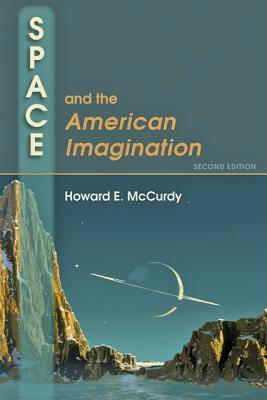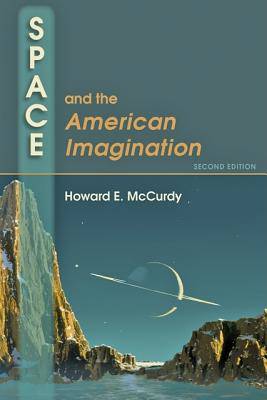
- Retrait gratuit dans votre magasin Club
- 7.000.000 titres dans notre catalogue
- Payer en toute sécurité
- Toujours un magasin près de chez vous
- Retrait gratuit dans votre magasin Club
- 7.000.0000 titres dans notre catalogue
- Payer en toute sécurité
- Toujours un magasin près de chez vous
Description
People dreamed of cosmic exploration--winged spaceships and lunar voyages; space stations and robot astronauts--long before it actually happened. Space and the American Imagination traces the emergence of space travel in the popular mind, its expression in science fiction, and its influence on national space programs.
Space exploration dramatically illustrates the power of imagination. Howard E. McCurdy shows how that power inspired people to attempt what they once deemed impossible. In a mere half-century since the launch of the first Earth-orbiting satellite in 1957, humans achieved much of what they had once only read about in the fiction of Jules Verne and H. G. Wells and the nonfiction of Willy Ley.
Reaching these goals, however, required broad-based support, and McCurdy examines how advocates employed familiar metaphors to excite interest (promising, for example, that space exploration would recreate the American frontier experience) and prepare the public for daring missions into space. When unexpected realities and harsh obstacles threatened their progress, the space community intensified efforts to make their wildest dreams come true.
This lively and important work remains relevant given contemporary questions about future plans at NASA. Fully revised and updated since its original publication in 1997, Space and the American Imagination includes a reworked introduction and conclusion and new chapters on robotics and space commerce.
Spécifications
Parties prenantes
- Auteur(s) :
- Editeur:
Contenu
- Nombre de pages :
- 408
- Langue:
- Anglais
Caractéristiques
- EAN:
- 9780801898686
- Date de parution :
- 01-03-11
- Format:
- Livre broché
- Format numérique:
- Trade paperback (VS)
- Dimensions :
- 155 mm x 228 mm
- Poids :
- 544 g

Les avis
Nous publions uniquement les avis qui respectent les conditions requises. Consultez nos conditions pour les avis.






